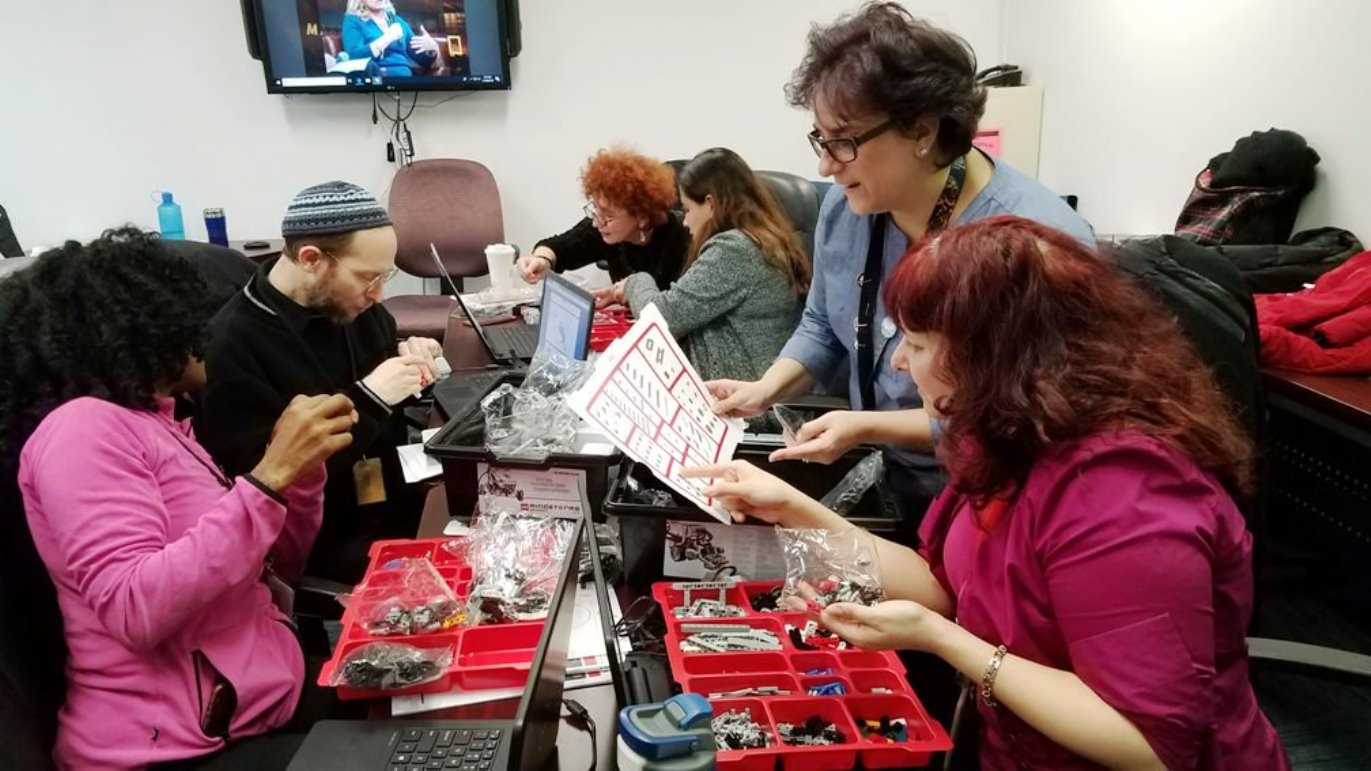Moiya McTier, an astrophysicist and storyteller who studies exoplanets and how they are affected by the swirling motion of the Milky Way galaxy, recently visited Central Library as part of the Discover Exoplanets exhibit, on display through Monday, January 27.
Discover Exoplanets features multimedia activities where visitors can build their own solar systems, see the most recent NASA discoveries, learn about whether popular TV shows and movies feature facts or fiction, and much more.
“I didn’t realize the library was going to be so big!” says McTier, “It was really nice to be surrounded by so many books and know that they’re available to the community.” McTier loves studying and teaching people about exoplanets—planets outside of our solar system—because they are more relatable than many other astronomy topics. “Everyone knows what it’s like to live on a planet because we all live here on Earth. Stars, galaxies, black holes—they can all seem kind of abstract compared to exoplanets,” she explains.
McTier believes that kids are naturally curious about the world around them, and says that is the first and biggest step to becoming a scientist. “The real question we need to ask is, How can we help kids who want to become scientists achieve their goals?” She says there are a few things we can do to make a difference. “First, we can talk about scientists who are women and/or people of color (and queer and disabled and poor—basically anyone who doesn’t look like a traditional scientist) so kids know it’s a possibility for them to follow their dreams.” Helping people see that scientists are human beings is part of what motivates McTier to talk to audiences about science, but she also does it because it’s fun for her.
McTier suggests taking advantage of learning tools like libraries and online science communities such as Zooniverse, which she calls possibly the largest and most successful citizen science project. Zooniverse is a place where chemists, biologists, and researchers from many different fields share their data, asking people to help them analyze it.
It’s not hard to incorporate science into your daily life. McTier says we can use the scientific method any time we need to solve a problem “even if that problem isn’t related to science.” She recommends “staying curious about the world so you’re constantly asking questions, make educated guesses about what you think the answer should be, and then do your best to uncover the truth.”









